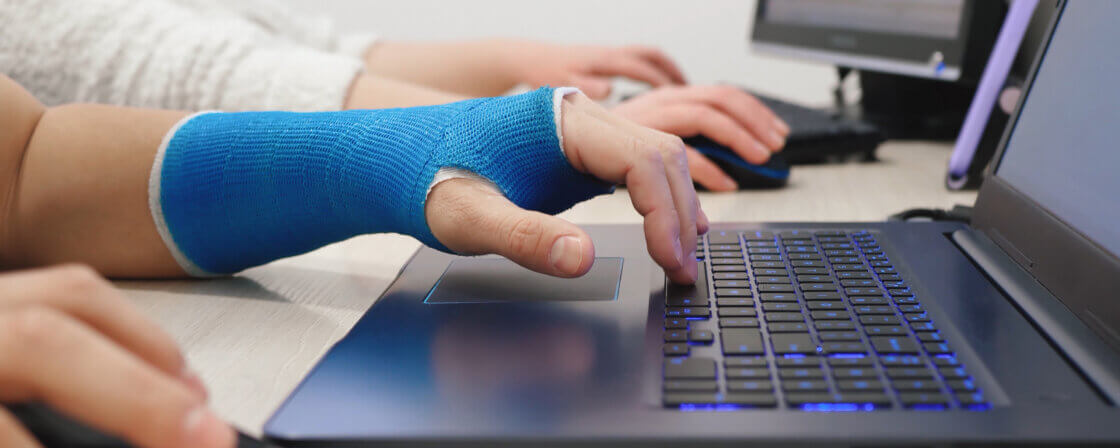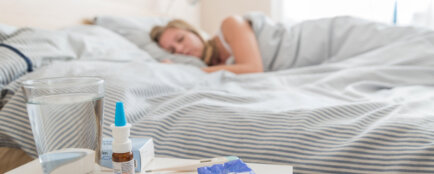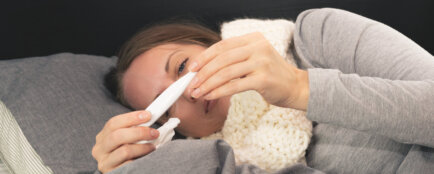Incapacity for work – rules
When you get sick, injured or quarantined, your doctor will issue you a temporary sick leave electronically in the form of an eSick Leave (now the only valid form of sick leave). Your doctor will decide how long you are temporarily unable to work. During this time, you are not working, but you are also paid part of your income. For the first 14 days of your sickness absence, you are entitled to wage compensation from your employer and from the 15th day you will start receiving sickness benefits. Temporary sick leave is now issued exclusively electronically as an eSickness card. Paper forms are no longer used – the necessary information is automatically available to your employer and the Social Security Administration.
Tip for article
Vacation, illness or holiday. These quite different situations for employees have one thing in common: they may give rise to a claim for wage compensation. You can read our article on the conditions under which this happens and the amount of wage compensation.
However, there are rules associated with incapacity leave. Without them, it would be easily abused. The main rule is the need to follow a treatment regime. This consists mainly of staying in a fixed place, i.e. at an address you provide to the doctor (e.g. your home or the home of someone who will look after you for the duration of your incapacity). However, it is essential that your place of residence is properly marked and accessible (e.g. by a working bell with a name tag).
This location can be changed during the course of your illness, but only with the approval of your doctor. If you want to move your convalescence to a cottage, for example, you must first request a change of address. If you would like to go abroad (e.g. if you want to be treated by your parents living in Slovakia), then you need approval not only from the treating doctor but also from the district social security administration. At the same time, your doctor may set you a ” walk-out” period, i.e. a period of time when you can stay away from your address.
Are you solving a similar problem?
Do you need help?
Do you want to know what your rights are during your temporary disability or do you think your employer has cheated you? Let our experienced attorneys answer your questions and help you find a suitable solution.
I want to help
- When you order, you know what you will get and how much it will cost.
- We handle everything online or in person at one of our 6 offices.
- We handle 8 out of 10 requests within 2 working days.
- We have specialists for every field of law.
Walking while off sick
You may or may not get sick pay. In particular, if you have a shorter but more intense illness (e.g. flu), you may not get sick pay at all. This is because their function is mainly for recuperation and also to take care of necessary business.
You can only walk for a maximum of 6 hours a day between 7 a.m. and 7 p.m. They do not have to be continuous, but must be divided into several intervals (e.g. two hours in the morning and four in the afternoon). You may also have unlimited outings (e.g. if you are undergoing cancer treatment and need to attend chemotherapy).
You should not leave your place of recovery outside of your walks, but exceptions include visits to the doctor who will give you a note of your whereabouts at that time.
Check on sick leave
Both your employer and the county social security office can check whether you are actually following the sick leave rules. However, the nature of the checks and the options available to them vary considerably:
Employer control on sick leave
Your employer can only check you for the first 14 days of your sick leave, i.e. when they pay you wage compensation. They can only check that you are staying in the place and keeping to the agreed times of absence. However, he has no right to information about your health or the progress of your recovery. It is none of his business if you come in wearing overalls and covered in oil.
It is also true that your employer must comply with the rules on unauthorised interference in your private life and the inviolability of your home. For example, he must not insist that you let him into your home. He should also not come to check on you too often or at inappropriate times (e.g. late in the evening).
Your employer does not have to come and check on you personally, but can send someone to do it for you. For example, your colleague or a complete stranger, but they must show a power of attorney from your employer. Your employer can also ask a social worker to check.
The check must be carried out with proof of identity (e.g. ID card or driving licence) and the decision on the temporary incapacity for work, which gives information about the specified outings and the place of convalescence.
Social Security check on sick leave
The District Social Security Administration can come to check on you at any time. Checks can be random, but they can also be initiated. They can happen from the first day of your sick leave, at the weekend, early in the morning, after 10 pm or even at night. In reality, night checks are not usually carried out. However, if it is suspected that you are not spending your nights in convalescence, then the check can come at any time. In addition, the checks are unlimited, so Social Services can visit you every day of your sick leave.
The Social Security Office checks not only that you are staying at your address, but also that you are following your treatment. So if you are sick with the flu and open the check with your hands covered in dirt and a shovel in your hand, you could be in trouble.
What if you’re not at home?
If your employer doesn’t see you at the check-up, he or she is required to notify the county social security office. They must give you the same information in their own hands. If you are not present at the inspection, they will leave a notice of the inspection in your mailbox.
In both cases, you must justify your absence or you could be in trouble. You must therefore go to your doctor and explain the situation. You must then send or take the same explanation to the social security office. The explanation could be, for example, that you were asleep and did not hear the doorbell or that you were sitting on the toilet with an unpleasant intestinal problem that prevented you from going to the check.
This explanation may or may not be accepted by Social Security. For example, if you have been prescribed medication that causes you to have a hard time sleeping, the explanation will probably pass muster. However, if the Social Security Office does not accept your justification, it will start an administrative procedure at the end of which a decision will be made about what penalty you will face.
Consequences of breaching sick leave
The Social Security Administration can shorten your sick leave or take it away completely, for up to 100 calendar days. The severity of the penalty depends on how seriously you have breached the temporary sick leave scheme and whether it was your first offence. If you violate the sick leave more than once, you could be fined up to CZK 20,000.
If you breach sick leave in the first 14 days, your employer can reduce or cancel your wage replacement payments altogether. If you break sick leave in a particularly serious way, then they can also give you notice of termination of employment. This includes situations where you would mistake sick leave for a holiday and go to the seaside for a week or use the time to earn extra money at a part-time job.
Tip for article
Did you get fired from your job? We’ll make sure you get everything you’re entitled to in the event of termination. We can help you defend yourself against your employer. We will offer a solution in as little as two days, nationwide.
Summary
Temporary disability exists for situations where an employee is sick, injured or quarantined. The employer provides wage replacement for the first 14 days of incapacity, after which sickness benefits are paid.
Medical treatment requires staying in a fixed place, which can be changed with the approval of a doctor. The employee may be given outings of up to six hours per day. Controls are carried out by the employer (for the first 14 days) and the district social security administration, with different powers and rules. Violations of sick leave can have serious consequences, including reduction or withdrawal of wage compensation, dismissal, withdrawal of sick leave or a fine of up to 20,000 crowns.
Frequently Asked Questions
Can the sick leave check come after 10 p.m.?
Yes, the sick leave check can come after 10pm. The law does not set any time limit for sickness checks, so the Social Security Office can carry out a sickness check at any time – early in the morning, late in the evening or at the weekend. In practice, a sickness check after 10pm is rarely carried out, but if it is suspected that the employee is not staying at the specified address outside of outings, it can come at night.
What happens if I'm not home when I'm checked for sick leave?
If the check does not catch you on sick leave, the OSSZ or the employer’s inspector will leave a notice of the check. You must then justify the absence to the treating doctor and the Social Security Administration – for example, by sleeping heavily after medication, a doctor’s visit or other relevant obstacle. If the OSSZ does not accept the excuse, this may result in a reduction or withdrawal of sick pay for up to 100 days. The employer then faces the risk of a reduction in wage compensation or even dismissal for particularly serious breaches of the regime.
How do sick leave walks work?
Sick leave is determined by the attending physician and may last no more than 6 hours per day between 7:00 a.m. and 7:00 p.m. They may be divided into several intervals (e.g. morning and afternoon). The purpose is to allow for a short recovery period and the necessary handling of personal matters. Outside of drop-off times you must be at the address indicated. If your medical condition is serious (e.g. cancer treatment), your doctor may allow unrestricted walks, but must always justify his/her action.
Who can carry out a sick leave check?
Sick leave checks can be carried out by two different institutions:
-
Employer – only during the first 14 days of sick leave. It monitors whether the employee stays at the address indicated and observes the specified absences.
-
The District Social Security Administration (DSSZ) – can check at any time, for the entire duration of the sick leave. The OSSZ checks not only attendance at the address but also compliance with the treatment regime.
What are the rules for sick leave and time off so that you are not at risk of a sick leave check or penalty?
During your sick leave, you must follow a “treatment regime”:
-
stay at the address indicated,
-
keep up your sick leave,
-
follow your doctor’s instructions,
-
report any change of residence in advance,
-
have the place of residence available for inspection.
If a sickness check finds a breach of the rules, the Social Security Administration may reduce or withdraw sick leave and the employer may not pay wage replacement in the first 14 days. For repeated or serious violations, there is also the risk of dismissal from work.




